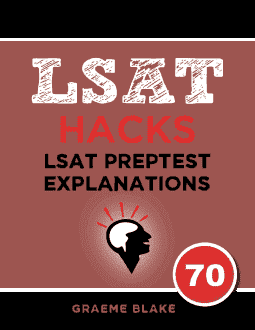DISCUSSION: This passage is an argument. The main point is that we shouldn’t listen to laypeople and their ideas about voluntariness. When we’re acting to reduce risks, we should listen to policy experts. Experts say to choose things that save the most lives for the least money.
There are multiple indications that this passage is an argument. Lines 14-19 say that voluntariness is not useful. Paragraphs 2-3 say that voluntariness is vague and arbitrary. Paragraph 4 concludes that we should judge interventions by how many lives they save.
___________
- This is true, but it’s just a fact that supports the main point of the passage. The main point is that we shouldn’t consider voluntariness important.
- CORRECT. The final paragraph supports this. The passage is making an argument and the fourth paragraph is the conclusion.
If you didn’t realize that the passage is an argument, look at the last two sentences of the first paragraph. The author says that voluntariness is not useful. Paragraphs 2-3 support this assertion, and this in turn leads to the conclusion in paragraph 4. - The whole point of the passage is that voluntariness is not a useful concept.
See the last two sentences of the first paragraph, and the last sentence of the fourth paragraph. We shouldn’t use voluntariness, whether or not experts decide what is voluntary. - This isn’t even true. The whole point of the passage is that voluntariness is not a useful concept. See the last two sentences of the first paragraph and the last sentence of the fourth paragraph.
- This is true, according to the passage. But it’s just a fact that supports the main point. The main point is that therefore voluntariness is not useful for making decisions.


Leave a Reply